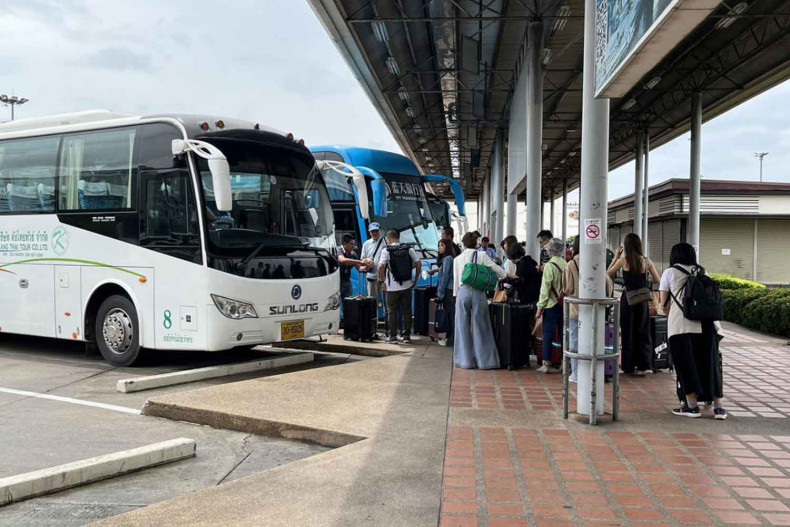
Hotels in general and the international airport in Chiang Mai still have a large number of rooms available and spare capacity due to the relatively tepid resumption of tourism post-pandemic, while concerns over PM2.5 dust during the high season still remain.
Prime Minster Srettha Thavisin visited the airport during the weekend to inspect its readiness to accommodate tourists, particularly after lifting visa requirements for Chinese tourists from Sept 25 until Feb 29, 2024.
Chiang Mai International Airport is preparing to extend its operating hours to 24/7, starting from November, to host international flights that usually require departure time slots beyond midnight and early inbound flights before the current opening time of 6am, especially carriers from China, South Korea and Japan, said Vijit Keawsaitiam, general manager of Chiang Mai Airport.
Airports of Thailand (AoT) reported that the bottleneck which caused congestion at the airport was at its passenger terminal rather than the flight slots which still allow the airport to be able to host 25 flights per hour.
Mr Vijit said the capacity at the airport currently was just half of 2019's level and there is still room to grow from the existing capacity, while the plan to build a second airport in Lamphun would be a long-term project for 2029, which AoT is currently studying.
Suladda Sarutilavan, director of the Chiang Mai office of the Tourism Authority of Thailand (TAT), said while domestic tourism has almost fully recovered in Chiang Mai, the international market has revived at a slower pace.
Prior to the pandemic, Chiang Mai had around 26 international flights per week, but this has dropped to 10 per week, or less than 50% of the level seen in 2019.
The capacity at the airport has been set to accommodate 8 million passengers per year, but the peak period in 2019 saw the number of passengers surpass 11 million. AoT has drawn up a plan to increase capacity to 16.5 million.
Ms Suladda said after Thailand announced a visa-free policy for Chinese travellers, hotels in Chiang Mai started to see advanced bookings of 90% for China's National Day holiday in October.
However, the key segment from China has changed from mass tour groups to individual travellers, mostly with high spending power who are looking for upgraded hotel services.
Of the 11.1 million visitors to Chiang Mai in 2019, 1.2 million were Chinese.
However, the Chinese market this year is expected to close at 250,000 travellers or less than 25% compared to the normal rate.
This was already an upgraded target from that previously set at 130,000 before announcing the visa-free policy.
"Chinese travelling via land border checkpoints in Chiang Rai to Chiang Mai fell before the pandemic as we've tightened restrictions on caravan tours and this group has yet to recover," said Ms Suladda.
She said tourism revenue in Chiang Mai should reach 80-90 billion baht in 2023, around 80% of 2019's tally, from 2.4 million foreign arrivals and 7 million local tourists.
She said hotel rooms in Chiang Mai are back in operation by 80%, with the average occupancy rate of 75% from the first to the third quarters.
With more tourists flooding in during the final quarter due to the visa policy, occupancy is expected to increase to 80%.
She said the TAT has to cooperate with more international airlines to bring more flights to the province as it played a crucial role in boosting the market in the first half. The top markets were China, South Korea, Taiwan, Hong Kong and Malaysia.